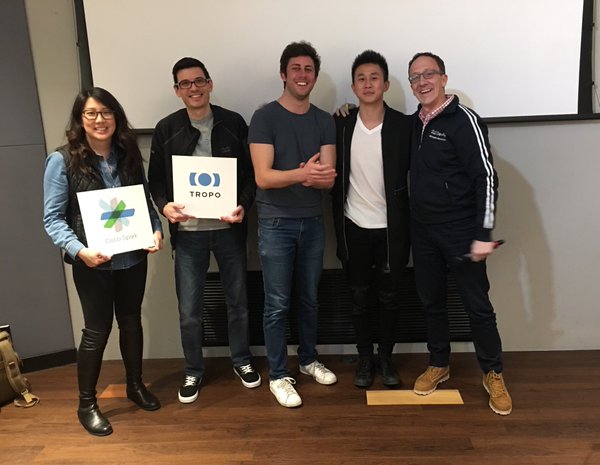
This year’s TADHack edition was particularly meaningful to me as it marked a few great milestones.
- First of all, exactly a year ago I was participating in my first hackathon – being TADHack mini London 2015.
- Secondly, I discovered University College London at TADHack that year and it gave me the idea to apply for a master’s degree there. I kept this thought in the back of my mind for a while and it is crazy to think that today I’m actually finishing up my degree at present.
- Third, I’ve participated in three TADHacks and – I have say – won a prize at all 3 of them! I’m starting to think that the sponsors have too much empathy for me!
All jokes aside though, every year the bar goes way up as more and more talented contestants enter the arena. Let me illustrate that for you:
- TADHack Mini London 2015 – my first year was pretty chill and I think I managed to showcase a thoroughly-developed application that involved the use of Telestax in a useful and commercializable way. I also learned a lot from the mistakes I made, especially from hacking alone.
- TADHack Global Lisbon 2015 – that year I got to team up with Mike Dauphinais and we built something useful and innovative using the Matrix APIs. However, that wasn’t enough to win so we ALSO involved hardware in the process to raise the quality of our hack. Hacking in a team brought us much more stress than expected but we had a lot of fun.
- TADHack Mini London 2016 – Again, we built something useful, innovative, and commercializable using Cisco Spark. However, this time we had to explore the dark universe of machine learning.
This year was especially great because I teamed up with one of my classmates from UCL, Brant Wang, who was not a developer. He was able to grasp the concepts really quickly and together we produced something really meaningful. The wonderful thing is now TADHack and the world of development reached a whole new level where non-developers are able to build applications without needing to be code gurus.
Brant and I ended up building BigBro – an anti-cyberbullying chat bot that uses the power of IBM Watson to detect certain speech patterns in chats that are linked to cyberbullying with the objective to alert parents or schools when victims aren’t able to speak out. Below is some additional info and video pitches:
Link to our pitch presentation from this weekend.
The even better part of this is that just a few days later, Facebook announced they were opening up their Messenger Platform to bots and third-party developers. This means we could potentially bring the BigBro technology to a billion people!
I’d like to thank Alan Quayle for pulling off such a great event every single time and democratizing the beautiful world of tech and programming to everyone!
PS: if you want to beat me next time, read about how to you can properly prepare for a hackathon
